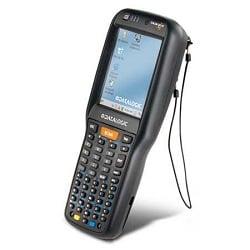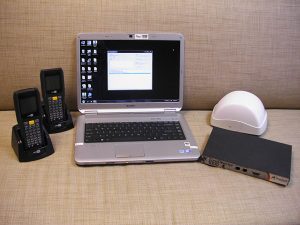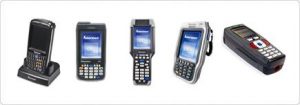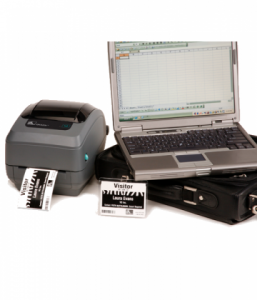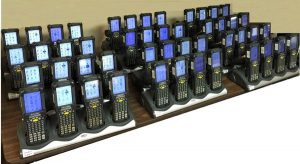There are many uses for barcode scanners and related technology. One of the more popular uses, and one that – unfortunately – many people are unfamiliar with, is badge scanning. Badge scanning allows you to track attendance, along with other data, for employees and attendees. There are actually several very important functions that you can perform with a badge scanner—in a variety of settings. If you are curious to know more about the uses of a badge scanner, and how they can best be utilized, read further. This article will serve as a handy guide to all things related to badge scanners.
Using Badge Scanners At Tradeshows

There is often a huge need for badge scanners at tradeshows. A tradeshow badge scanner is able to collect useful data on who actually attended your tradeshow! This data-collection method relies on sophisticated software that would be programmed by the barcode vendor. While badge scanners can be used to track overall tradeshow attendance, they can also serve a more specified function: they allow individual exhibitors to scan badges and collect leads. These leads can then be downloaded onto a computer, so that the exhibitor can easily follow up on them. For this reason, it is recommended that you acquire multiple badge scanners for your tradeshow.
Using Badge Scanners To Track Employee Attendance
Companies (large and small) often use badge scanners as well. Badge scanners allow companies to track employee attendance, taking the place of the outdated “punch card.” Badge scanners are able to record employee clock in/clock out time with accuracy and precision, so that nothing is left for debate. On top of that, data that the scanner records is automatically loaded into a database, so that management can easily track employee attendance. Companies that have switched from manual time clocks to automated badge scanners have found the latter to be much more accurate and convenient.
Badge Scanner Software
As mentioned before, this automated method of data collection is possible thanks to some very sophisticated software. Badge scanner software is provided by the vendor itself, and is often included in the pricing package. Many vendors will give you the option of buying standard, pre-packaged software, or customizing that software to meet your specific needs. If you are looking to use your badge scanners in a unique and creative way, then the customizable option is likely the one for you. When buying a barcode scanner, look for a vendor that provides this option, and be sure to ask the vendor what customization would best suit your purposes.
To Buy Or To Rent
In most cases, renting a badge scanner is an option. In fact, it is an especially useful option if you are only using your badge scanner for a short period of time (as with tradeshows). In order to determine if you should buy or rent, think about how long you would need your badge scanner for, how often you would need to rent it, and what the cost comparison between buying and renting would be.

